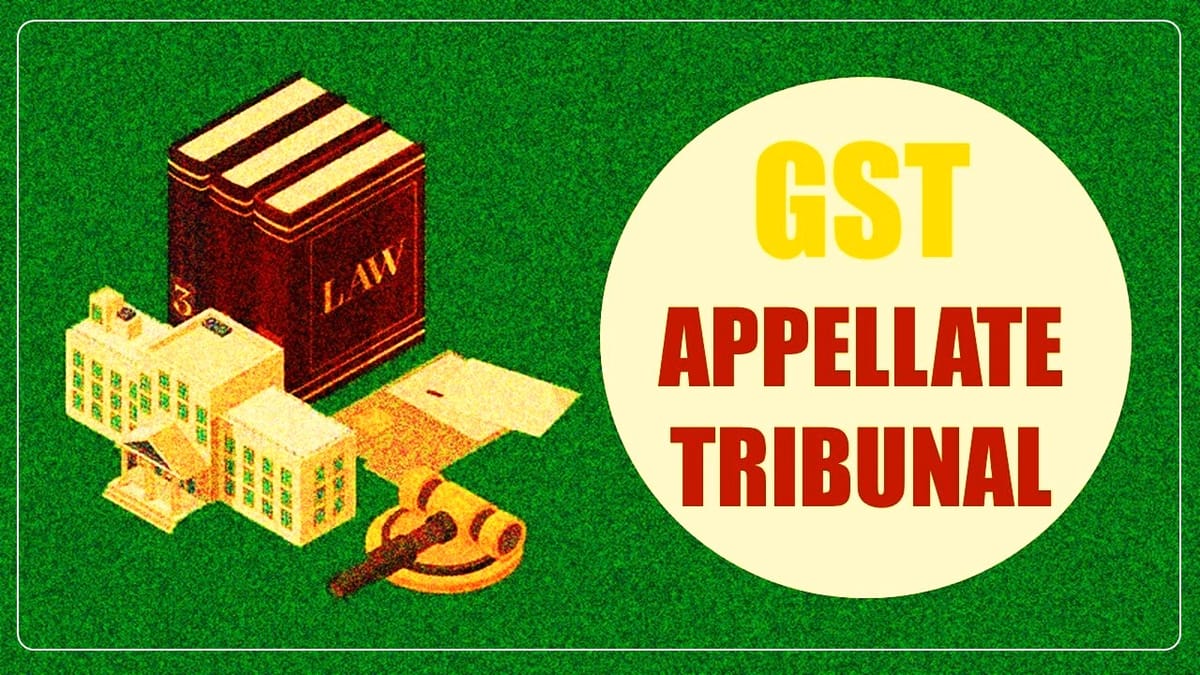The Supreme Court issued notice on a petition filed by Madras Tax Bar challenging constitutional validity of Sections 149 and 150 of the Finance Act of 2023, which seek to substitute Sections 109 and 110 of CGST Act 2017.
Reetu | Sep 18, 2023 |

CGST Appellate Tribunal Provisions challenged by Madras Tax Bar
The Supreme Court issued notice on a petition filed by the Madras Tax Bar challenging the constitutional validity of Sections 149 and 150 of the Finance Act of 2023, which seek to substitute Sections 109 and 110 of the Central Goods and Services Tax Act of 2017. The sections in question concern appointments and terms of service for members of the CGST Act’s Appellate Tribunal, on Friday.
Senior Advocate, appeared for the petitioner, an association of taxation lawyers, before a bench consisting of CJI DY Chandrachud, Justice JB Pardiwala, and Justice Manoj Misra. According to the amendment, advocates are ineligible to serve as judicial members of the GST Appellate Tribunal. This, he claimed, was in violation of four Supreme Court Constitution Bench decisions.
“Advocates are not eligible to apply for judicial positions. Advocates are not barred from serving as judicial members in any tribunal in the country,” he said.
The CJI-led bench issued notice in the case and authorised the Attorney General of India to serve a copy of the petition on him.
The PIL challenges Sections 149 and 150 of the Finance Act, 2023 that seek to substitute Sections 109 and 110 of the CGST Act, specifically with respect to Sections 109(9), 110(1)(b), 110(1)(c), 110(1)(d), 110(4)(b)(ii), 110(4)(b)(iv), 110(6), 110(8), 110(9) and 110(10) of the CGST Act which relate to appointments and conditions of service of members to the Appellate Tribunal under the CGST Act.
According to the PIL, the provisions violate Articles 14, 19, and 21 read together with Article 50 because they violate the principles of judicial independence, rule of law, and separation of powers.
The petition states that the direct violations include:-
The PIL stated that the CGST Act was passed by the parliament in 2017 and that under the scheme of the Act, an appellate tribunal known as the Goods and Services Tax Appellate Tribunal was to be established under Sections 109 and 110 of the Act. However, the Appellate Tribunal never became operational. The Union Government introduced the Finance Bill, 2023 in the Lok Sabha on January 1, 2023.
It should be noted that there were no GST Appellate Tribunal provisions in the Finance Bill, 2023 at the time. According to the petitions, on 22.03.2023, Sections 137A to 137G were added to the Finance Bill, 2023, through last-minute amendments, amending the provisions of the CGST Act.
Section 137B also proposed amending Section 109 of the CGST Act, while Section 137C proposed amending Section 110 of the CGST Act.
As per the petition, “Various changes were proposed to the Appellate Tribunal‘s constitution, qualifications for members, appointment process, and the terms of service of the members to be appointed through these amendments.”
It further said that, “The substituted Sections 109 and 110 will contain provisions that are directly and ostensibly in violation of various decisions of this Hon’ble Court in which similar provisions have been held to be unconstitutional because they affect the independence of the judiciary, the rule of law, and the separation of powers, all of which are part of the basic structure of the Constitution and are sourced in Articles 14, 19, and 21, amongst others.”
For Official Judgment Download PDF Given Below:
In case of any Doubt regarding Membership you can mail us at [email protected]
Join Studycafe's WhatsApp Group or Telegram Channel for Latest Updates on Government Job, Sarkari Naukri, Private Jobs, Income Tax, GST, Companies Act, Judgements and CA, CS, ICWA, and MUCH MORE!"